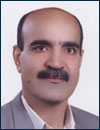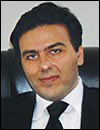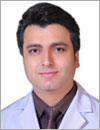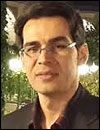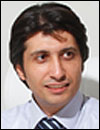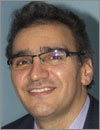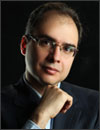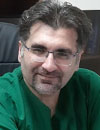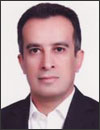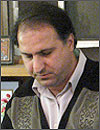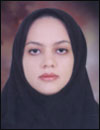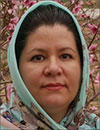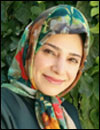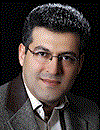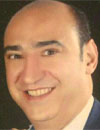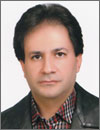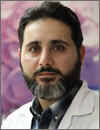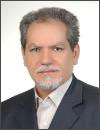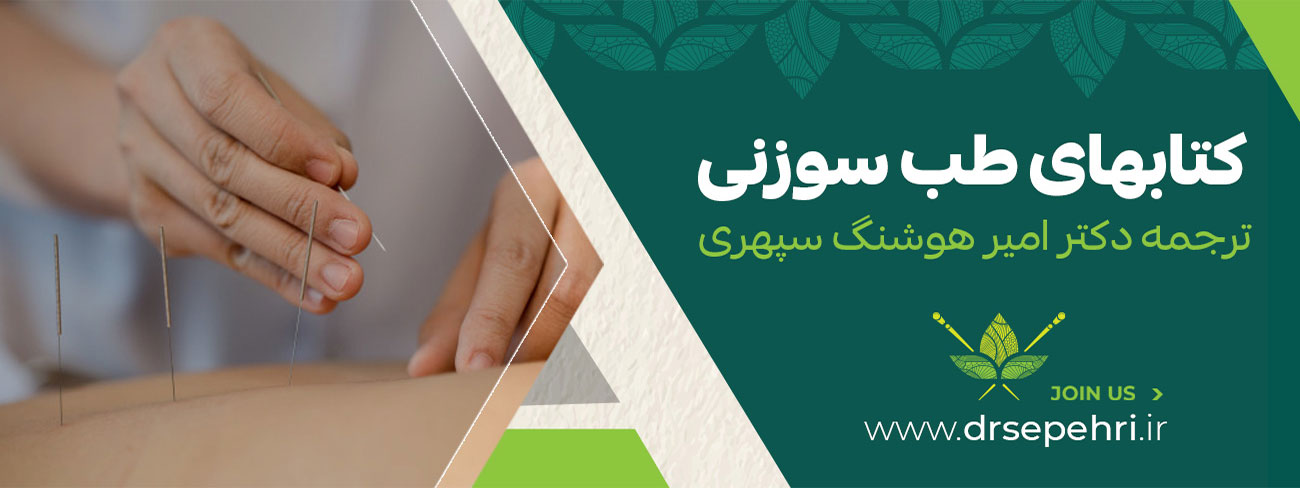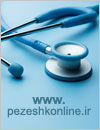
طب سوزنی علم یا شبه علم؟
شبکه اطلاع رسانی پزشک آن لاین [ پرتال اطلاع رساني ]آدرس وب سایت : www.pezeshkonline.irJournal of Chinese Medicine Number 104 February 2014 Traditional Chinese Medicine - Science or Pseudoscience? A Response to Paul Unschuld 41
Traditional Chinese Medicine -
Science or Pseudoscience?
A Response to Paul Unschuld
Abstract
This article was motivated by the interview in Issue 103 of The Journal of Chinese Medicine (October 2013) with
Professor Paul Unschuld. Although Professor Unschuld is a prolific translator of Chinese medicine texts, and thus
a gatekeeper to vital information for practitioners who do not read classical Chinese, this interview (together with
other communications from Professor Unschuld) raises questions about his perspective on Chinese medicine. It
appears that Unschuld characterises Chinese medical theories as magical’ i.e. pseudoscientific thinking. This
article examines the tacit beliefs which appear to underlie the work of Professor Unschuld (and that seem to be
shared by other prominent authors such as Joseph Needham and Ted Kaptchuk) that deny Chinese medicine equal
status with modern biomedicine - as being based on scientific fact. In addition, the question is asked: Should
Chinese medicine be subject to verification by the methods of Western biomedicine, and if so, which part(s) of
Chinese medicine meet that standard?
Advocates and practitioners of traditional Chinese
medicine face a number of perplexing issues in the
21st century: What is traditional Chinese medicine?
Is it the same as classical Chinese medicine? Does it
differ from the traditional medicines of other Asian
countries? Is it an effective system of health care,
and is it based on scientific principles or on faith and
unsubstantiated dogma? These are just some of the
questions that are frequently asked about Chinese
medicine by practitioners, advocates, researchers
and the consuming public. They are not always easy
to answer in light of the fact that the government of
the People’s Republic of China has given its stamp
of approval to a particular version of the medicine
called Traditional Chinese Medicine’ (TCM), the
identity and boundaries of which are fluid, evolving
and subject to dispute by historians and partisan
groups alike.1 Perhaps a more provocative question is:
Should Chinese medicine be subject to verification by
the methods of Western biomedicine, and if so, which
part(s) of Chinese medicine meet that standard?
The specific motivation for this article was the
interview of Professor Paul Unschuld by Z’ev
Rosenberg in issue 103 (October 2013) of The Journal
of Chinese Medicine. For me, this interview raised
a number of red flags. Unschuld is an eminent
philologist and translator of numerous Chinese
medical works, including some of the classics, and his
work is generally accepted by the Chinese medicine
community in the West as authoritative. It might
come as a surprise to these readers, therefore, to
discover that Unschuld does not accord the premises
of Chinese medicine (i.e. qi, yinyang, wuxing, etc.) the
status of scientific laws or axioms, but rather regards
them as hypotheses that must be proven by Western
biomedical science before he will acknowledge their
validity as the basis for a rational medical system.2,3
Unschuld appears to view these concepts of what
he refers to as systematic correspondence theory’ as
pseudoscience in comparison to Western medicine,
which for him is based on real’ science.4 While the
interview does not state this opinion explicitly, one
only has to read Unschuld’s literary works carefully
to see this underlying thread. It was for this reason
that when I had a chance to chat with Unschuld in
2008, following a speech he gave at the Acupuncture
& Integrative Medicine College (AIMC) campus
in Berkeley (California), I asked him the following
question: If you happened to develop a case of low
back pain or sciatica, would you consider acupuncture
treatment?’ His unequivocal answer was, Certainly
not!’ When pressed for his reasons, he explained that
he was only interested in using treatments that had
proven themselves according to Western biomedical
standards.5
Let me be as clear as possible here: I happen to hold
Unschuld in high regard for the breadth and depth
of his work in translating Chinese medical texts, and
for his anthropological, sociological and political
analyses of these materials. Among the latter aspects
By: Peter Eckman
Keywords:
Chinese
medicine,
acupuncture,
TCM, science,
systematic
correspondence,
pseudoscience,
history, Neijing,
Sasang.
Unschuld appears to view these concepts of what he refers
to as systematic correspondence theory’ as pseudoscience.
42 Traditional Chinese Medicine - Science or Pseudoscience? A Response to Paul Unschuld Journal of Chinese Medicine Number 104 February 2014
of Unschuld’s work, as revealed in Rosenberg’s interview,
is his report that the Chinese government’s attitude toward
TCM is that it is part of modern biomedicine and that the
basis of TCM is molecular biology (positions codified in
the Beijing Declaration of 2007 and presented to health
representatives and scientists from 50 nations).6 Although
Unschuld’s works are meticulous and consistently
interesting they come with a hidden premise (as stated
above), which crucially affects the conclusions he comes to,
and which should be made explicit. Unschuld is not alone
in this regard, and in fact acknowledges his indebtedness
to the work of his predecessor, Joseph Needham, whose
Science and Civilisation in China series showed a similar
scepticism regarding systematic correspondence’ as a
scientific approach to medical knowledge and practice.7
Perhaps protoscience’ more accurately conveys these
authors’ opinions of Chinese medicine than the more
derogatory term pseudoscience’, but this distinction does
not change the danger of such thinking.8 Whilst practitioners
of Chinese medicine as a community are beholden to these
pioneering authors, they should read their works with a
clear understanding of the underlying belief systems and
biases.9 Therefore, when it comes to searching for a deeper
understanding of these foundational concepts of Chinese
medicine, the serious student or practitioner must look
elsewhere.
Not all Western translators of Chinese medical texts have
disavowed the basic tenets of Chinese medicine. Manfred
Porkert, Claude Larre and Elisabeth Rochat de la Vallee
have all taken the view that the axiomatic theses of Chinese
medicine are accurate descriptions of nature, and thus
qualify as scientific’.10 Interestingly, Porkert and Rochat de
la Vallee are themselves practitioners of Chinese medicine,
while Larre was a founder of the European School of
Acupuncture in France. Neither Unschuld nor Needham
have any experience as medical practitioners, a fact which
Unschuld acknowledges and discusses in his interview.
He cites his experience collaborating with Professor Zheng
Jinsheng, former director of the Research Institute for the
History of Chinese Medicine and Medical Literature of
the China Academy of Chinese Medical Sciences on the
translation of the Neijing. What is not revealed is Zheng’s
belief regarding the premises of Chinese medicine, and
whether it is similar to Unschuld’s (and thus represents
the official Chinese governmental position that is so
well described by Unschuld), or whether he acted as a
counterfoil to Unschuld’s scepticism. Unschuld reports
having observed a traditional practitioner in Taipei for
several months, but inevitably his belief system would
have affected his perception of the treatments, and how
he interpreted both the positive and negative clinical
outcomes. I myself have been in the position of observing
respected acupuncture practitioners at work, and what I
learned was immeasurably enhanced by my acceptance of
the truth of the theoretical premises upon which their work
was based.11
Unschuld’s is not the only voice from within the Chinese
medicine community in the West to have questioned its
fundamental tenets. As early as 1983, Ted Kaptchuk, in
his groundbreaking book The Web That Has No Weaver,
was generally dismissive of five phase (wuxing) theory as
a clinical guideline,12 although at the time he was a clear
proponent of yinyang theory and the rest of the seminal
beliefs and practices which form the basis of TCM, a style
of medical care he had learned in Macau.13 In a subsequent
edition of his book, Kaptchuk modified his negative
comments about the five phases,14 and he has generally been
accepted by the Chinese medicine community in the West
as one of its leading teachers and spokesmen.15 Since I knew
Kaptchuk personally,16 and was impressed by reports of his
post-Web’ research (especially with regards to the psychospiritual
aspects of Chinese medicine17), I was dumbstruck
when I read an article in the New Yorker magazine in 2011, in
which Kaptchuk was quoted as believing that acupuncture
was nothing more than a powerful placebo, and that he had
given up its practice more than twenty years ago.18 It would
appear that Kaptchuk has adopted the same stance as
Unschuld - that Western biomedicine is the only scientific
medical system. Where he differs from most practitioners
of Western medicine is in his belief that a dynamically
presented placebo is one of the most effective treatments
in a physician’s armamentarium, and that the relationship
between physician and patient is the most powerful
component of placebo treatment.19
I believe there is a common belief - shared by Unschuld,
Kaptchuk and the Chinese government (among many
others) - that science is limited to its Western tradition,
and that there can be no other kinds of science. This is a
proposition which I find untenable, and which undermines
all versions of traditional Oriental medicine. The essence
of science, to me at least, is the careful observation of the
natural world, with a view to learning useful, and hopefully
reliable methods of influencing future phenomena.
Chinese medicine is notable for the emphasis it puts on
the careful observation of nature. The empirical evidence
for the usefulness of Chinese medicine is hard to dispute,
since it has been successfully preserved by the peoples of
both China and Japan, despite governmental attempts to
outlaw its practice during various historical epochs. It has
additionally gained a strong foothold in the West, where
people have voted with their wallets to support a growing
Kaptchuk was quoted as believing that acupuncture was
nothing more than a powerful placebo ...
Journal of Chinese Medicine Number 104 February 2014 Traditional Chinese Medicine - Science or Pseudoscience? A Response to Paul Unschuld 43
Oriental medical profession. People obviously find it useful.
The most difficult criterion to evaluate is reliability, that is,
how well can theory predict the outcome of interventions
(experiments, treatments). This criterion is where Western
science has traditionally been most heavily invested
with its emphasis on the gold standard of the randomised,
controlled, double blind trial - and where Oriental medicine
has most often been criticised.
A careful analysis shows that things are not as simple as
the critics of Oriental medicine suggest. Take the Western
medical treatment of rheumatoid arthritis as an example.
Is there a standard treatment for this condition? Not really.
There are multiple pharmaceutical interventions that can be
prescribed. Can a physician accurately predict if any given
patient will respond positively to one of these drugs, and if so,
for how long and with what side effects? Again, the answer
is no. All that Western medical science can tell us about
this intervention (experiment) is the statistical probability
of a positive outcome, the duration of said outcome,
and the likelihood of various side effects. Most Western
medical therapeutics are based on this kind of statistical
probability of success, which can vary from close to 100 per
cent in some cases (such as with smallpox vaccination20),
to a marginal likelihood in others, such as some varieties
of cancer chemotherapy. The efficacy of TCM therapeutics
may not be as well documented as for Western medical
therapies, but whether we look at acupuncture, herbal
medicine or other modalities, we will find the same pattern:
some patients respond well, the duration of response will
vary and some patients will not improve. In fact, I believe
the Oriental medical profession should be criticised for
often claiming that their treatments are free of side effects,
and that they can do no harm. Maybe such a statement
might be true for a perfect practitioner who never made
an error in diagnosis, treatment formulation or therapeutic
application, but I have never met such a practitioner in my
40 years of study and practise. In fact, I believe it is exactly
these negative responses to treatment that strengthen
the case for Oriental medicine being based on science. If
interventions like acupuncture have no inherent potential
to improve a person’s health and well-being (assuming an
accurate diagnosis, treatment formulation and application),
then there should also be no reason for occasional negative
outcomes. Actually the classic texts of Chinese medicine
repeatedly describe the potential for incorrect treatment
to worsen a patient’s health. This can only occur if there is
some real natural21 change evoked by such treatment, and
it is precisely the study, and application of therapies that
bring about this natural change that characterise Chinese
medicine, and mark it as scientifically based. Kaptchuk’s
placebo explanation for the efficacy of acupuncture appears
to me to be clearly inadequate, especially in view of its
successful use in babies and animals.
In his interview Unschuld presents several examples of
why the Chinese government has opted to favour Western
biomedical science over traditional Chinese medical science,
and how in the process it has attempted to eliminate the
latter’s classical underpinnings. His first example is a clear
case of attacking a straw man’. He states, To return to premodern
Chinese medicine would mean to use the same
needle on several persons and to neglect even the most
basic requirements of personal hygiene’. Do either of these
issues have the slightest connection to the theoretical or
practical principles of classical acupuncture? I should hope
not. His second example is: The Chinese administration
… is aware of the fact that those who believe in yinyang
and five phase theories rather than modern science will not
be able to design an electric lamp, make a cellular phone
speak …’ Aside from the sociopolitical implications of this
statement, there is an unexamined assumption in the use of
the word rather’, implying that these two belief systems
are incompatible. This assumption seems quite strange in
the context of Chinese culture, where it is quite common
for an individual to be a believer in Daoism, Confucianism
and Buddhism all at the same time. Different belief systems
- even those that contradict each other - capture different
aspects of reality. The explanation for such a proposition
lies in the frequently-stated observation that the map is
not the territory’. Nature, or reality, is never completely
as described by any theory or doctrine. These theories are
merely lenses we can use to look at different aspects of
reality. Biomedicine gives us one very useful lens to look
at health and illness. Oriental medicine provides us with a
different, but equally valid and useful lens.
Many authors before me have pointed out that Western
science is analytical, quantitative and deductive, whereas
Eastern science is synthetic, qualitative and inductive.22
Because of these differences, the types of investigation
(experiments) necessary to validate propositions in each
will also be different. In Eastern medicine (such as TCM), the
active role played by the therapist is an inherent part of any
treatment, thereby automatically excluding randomised
double blind trials as a valid means of evaluation.23 This
state of affairs does not disqualify Eastern medicine as being
scientifically-based. Even Western science has areas where
the influence of the observer (experimenter) cannot be
eliminated, such as in quantum mechanics, or in applying
the uncertainty principle. While agreed-upon standards
for research in Eastern medicine may not yet exist, our
professional response should be to examine and debate
this question to see if such an approach can be formulated,
Biomedicine gives us one very useful lens to look at health
and illness. Oriental medicine provides us with a different,
but equally valid and useful lens.
44 Traditional Chinese Medicine - Science or Pseudoscience? A Response to Paul Unschuld Journal of Chinese Medicine Number 104 February 2014
rather than to reduce ourselves to the position of being a
minor branch of biomedicine, or give up the pretense of
being a rational system of therapy altogether. If either of
these latter options is adopted, there will be no true Chinese
medicine left.
In summary, I believe that traditional Oriental medicine
(including TCM) is a branch of Eastern science, while
biomedicine is a branch of Western science. Both reveal
truths, both are useful guides for healthcare providers,
but neither is reducible to the other. Like so many other
اثرات تزریق بوتاکس در لیفت شقیقه، ابرو و رفع افتادگی پلک
دکتر پارسا نوایی [ پوست ، مو و زیبایی ]
 کاشت ابرو به روش FIT چیست و چگونه انجام می شود؟دکتر سهیلا طاهری [ متخصص پوست و مو ]
کاشت ابرو به روش FIT چیست و چگونه انجام می شود؟دکتر سهیلا طاهری [ متخصص پوست و مو ]روش FIT برای کاشت مو؛ همه اطلاعات کاربردی و پاسخ به سوالات متداولدکتر سهیلا طاهری [ متخصص پوست و مو ]
فیزیوتراپی در بیماران سکته مغزی با چه اهدافی انجام میشود؟دکتر سلمان فلاح [ متخصص طب فیزیکی و توانبخشی ]
مزایای تشخیص پوکی استخوان با عکس رادیولوژی در منزلآقای امید ترکاشوند [ خدمات پزشکی در منزل ]
رابطه بین بیماریهای مقاربتی و تاثیر آنها بر سلامت باروری مرداندکتر عنایت الله ایزدی [ متخصص کلیه و مجاری ادراری ]
تزریق بوتاکس برای از بین بردن خطوط خرگوشی روی بینیدکتر پونه دورودی [ کوچینک سلامت و زیبایی ]
همه چیز در مورد عفونت قارچی ناخندکتر جمال الدین حسن زاده [ متخصص پوست و مو ]
درمان سرطان سینه به روش ایمونوتراپیدکتر سید محمد رضا حکیمیان [ بورد جراحی و فلوشیپ جراحی سرطان ]
عمل برگشت وازکتومی چیست و چگونه انجام می شود؟دکتر مجید حقیقت [ متخصص کلیه و مجاری ادراری ]
روشهای از بین بردن و تخلیه چربی اضافه پلکدکتر فاطمه عندلیب [ متخصص پوست و مو ]
ژل روان کننده واژن؛ بهترین روان کننده برای رابطهدکتر زهرا صابری [ متخصص زنان و زایمان ]
لیزر Co2 فرکشنال برای درمان منافذ باز پوستدکتر رضا رباطی [ متخصص پوست و مو ]
آیا استفاده از دهانشویه برای کودکان مناسب است؟دکتر نیلوفر فلاح [ متخصص دندانپزشکی کودکان ]
معجزه میکرونیدلینگ برای صورتدکتر مینا دادگر [ پوست ، مو و زیبایی ]
همه چیز درباره مزوتراپی؛ مزایا ، عوارض و قیمتدکتر اکبر مزروعی [ پوست ، مو و زیبایی ]
همه چیز در مورد عمل جراحی پروتز گونهدکتر شهریار لقمانی [ فوق تخصص جراحی پلاستیک ]
اهمیت فیزیوتراپی برای بیماران سکته مغزی در منزلآقای امید ترکاشوند [ خدمات پزشکی در منزل ]
چگونه ماندگاری تزریق بوتاکس را افزایش دهیم؟دکتر اکبر مزروعی [ پوست ، مو و زیبایی ]
آسیب نخاعی و تاثیرات آن بر باروری مرداندکتر عنایت الله ایزدی [ متخصص کلیه و مجاری ادراری ]
عمل واژینوپلاستی با لیزر؛ مزایا، مراحل انجام و کاندیدای مناسبدکتر زهرا صابری [ متخصص زنان و زایمان ]
اوزون تراپی شانه یخ زده یا منجمد؛ مزایا، معایب و کاندیدای مناسبدکتر سلمان فلاح [ متخصص طب فیزیکی و توانبخشی ]
مزایا و معایب تزریق نانوفت برای جای جوشدکتر پونه دورودی [ کوچینک سلامت و زیبایی ]
